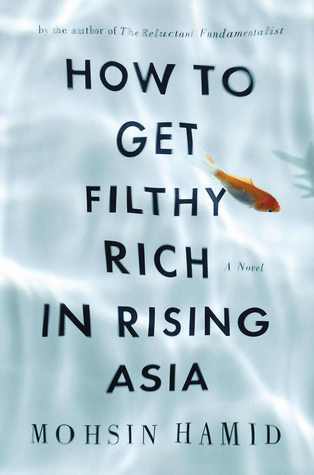More on this book
Community
Kindle Notes & Highlights
When he looks around him here, he does not see prickly leaves and hairy little berries for an effervescent salad, tan stalks of wheat for a heavenly balloon of stone-ground, stove-top-baked flatbread. He sees instead units of backbreaking toil. He sees hours and days and weeks and years. He sees the labor by which a farmer exchanges his allocation of time in this world for an allocation of time in this world. Here, in the heady bouquet of nature’s pantry, your father sniffs mortality.
In the history of the evolution of the family, you and the millions of other migrants like you represent an ongoing proliferation of the nuclear. It is an explosive transformation, the supportive, stifling, stabilizing bonds of extended relationships weakening and giving way, leaving in their wake insecurity, anxiety, productivity, and potential.
SURELY IDEALS, TRANSCENDING AS THEY DO PUNY humans and repositing meaning in vast abstract concepts instead, are by their very nature anti-self? It follows therefore that any self-help book advocating allegiance to an ideal is likely to be a sham.
These idealists tend to congregate around universities. There they find an amenable environment of young, impressionable, malcontented, and ambitious individuals, individuals who, were they legends of yore instead of still-pimply and poor-personal-hygiene-sporting men and women in contemporary Asia, would be dashing off to slay dragons and triumph over genies, individuals, in other words, who give corporeal form to the term sucker.
But when you read a book, what you see are black squiggles on pulped wood or, increasingly, dark pixels on a pale screen. To transform these icons into characters and events, you must imagine. And when you imagine, you create. It’s in being read that a book becomes a book, and in each of a million different readings a book becomes one of a million different books, just as an egg becomes one of potentially a million different people when it’s approached by a hard-swimming and frisky school of sperm.
Readers don’t work for writers. They work for themselves. Therein, if you’ll excuse the admittedly biased tone, lies the richness of reading.
You catch at that moment a reflection of your ex-wife in the form of your deputy, glimpsing, as you do periodically, a telltale flourish of the genetic hand that drew both their lines, beautiful in her case, rather comedic in his.
Meanwhile similar attempts, both official and non, seem to be under way to try to desiccate society itself, through among other things creeping restrictions on festivals and the public pursuit of fun, with a similar result, cracks, those widening fissures evident between young people, who appear to you divided as never before, split into myriad, incomprehensible tribes, signaling their affiliations with an automobile sticker, a bare shoulder, or some arcane permutation in the possibilities for facial hair.
But what you do sense, what is unmistakable, is a rising tide of frustration and anger and violence, born partly of the greater familiarity the poor today have with the rich, their faces pressed to that clear window on wealth afforded by ubiquitous television, and partly of the change in mentality that results from an outward shift in the supply curve for firearms.
But quickly other data begin to accrue, likely starting with your eyes and your mouth, her image of you resolving itself into something different, something timeless, or if not entirely timeless, still beautiful, handsome to behold. She sees in the cock of your head your awareness of the world around you, in your hands your armored gentleness, in your chin your temper. She sees you as a boy and as a man. She sees how you diminish her solitude, and, more meaningfully, she sees you seeing, which sparks in her that oddest of desires an I can have for a you, the desire that you be less lonely.
We are all refugees from our childhoods. And so we turn, among other things, to stories. To write a story, to read a story, is to be a refugee from the state of refugees. Writers and readers seek a solution to the problem that time passes, that those who have gone are gone and those who will go, which is to say every one of us, will go. For there was a moment when anything was possible. And there will be a moment when nothing is possible. But in between we can create.
You feel a love you know you will never be able to adequately explain or express to him, a love that flows one way, down the generations, not in reverse, and is understood and reciprocated only when time has made of a younger generation an older one.
Medications do not relieve her pain, but they make it less central, and in her center builds instead a desire to detach. It costs her to be touched, as she approaches her finish, companionship softly irritating her, like the remaining strand of flesh binding a loose milk tooth to its jaw. An almost biological urge to depart is upon her, a birthing urge, and at the end it is only with great consideration for what has been, with love, in other words, that she manages to look up from her labors to give you a smile or squeeze your hand.


